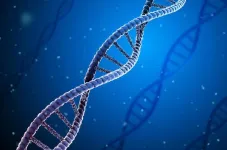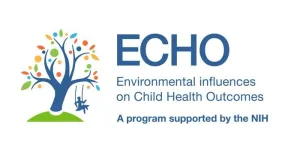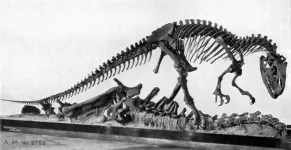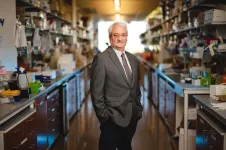(Press-News.org) EMBARGOED FOR RELEASE UNTIL 4 P.M. ET, WEDNESDAY, NOVEMBER 1, 2023
MINNEAPOLIS – People who live in neighborhoods with lower socioeconomic status are less likely to receive clot-busting medications or undergo clot-removing procedures after they have a stroke than people who live in neighborhoods with higher socioeconomic status, according to a study published in the November 1, 2023, online issue of Neurology®, the medical journal of the American Academy of Neurology.
“These treatments can greatly reduce death and disability from stroke, but previous studies have shown that few people actually receive the treatments,” said study author Amy Ying Xin Yu, MD, of the University of Toronto in Canada. “We wanted to see how socioeconomic disparities play a role, especially in an area where everyone has access to universal health care.”
The study looked at all people living in Ontario, Canada, who had an ischemic stroke during a five-year period, for a total of 57,704 people. Ischemic stroke is caused by a blockage of blood flow to the brain and is the most common type of stroke.
The study looked to see how many of those people were treated with clot-busting drugs or surgery to remove blood clots.
Researchers also looked at participants’ neighborhoods and divided them into five groups based on their neighborhoods’ socioeconomic status, which was determined by factors such as the percentage of adults without a high school diploma, unemployment rate and income level.
A total of 17% of those living in the neighborhoods with the lowest socioeconomic status were treated, compared to 20% of those living in the neighborhoods with the highest socioeconomic status.
When researchers took into account other factors that could affect treatment, such as age, high blood pressure and diabetes, they found that people in the neighborhoods with the lowest socioeconomic status were 24% less likely to be treated than people in the neighborhoods with the highest socioeconomic status. There was no difference in treatment between the neighborhood with the lowest status and the middle three neighborhoods.
“Our study underscores the need for tailored interventions to address socioeconomic disparities in access to acute stroke treatments, including educational and outreach programs to increase awareness about the signs and symptoms of stroke in various languages and efforts to distribute resources more equitably across neighborhoods,” Yu said. “Further research is needed to examine the specific causes of these disparities, so we can find ways to address the larger systemic issues that need to be improved to better serve people from under-resourced neighborhoods.”
A limitation of the study was that researchers did not have information on other factors that could affect stroke treatment, such as the time symptoms started or how severe the stroke was.
The study was supported by ICES, a health research institute in Ontario; the Heart and Stroke Foundation of Canada; PSI Foundation; and Ontario Health Data Platform.
Learn more about stroke at BrainandLife.org, home of the American Academy of Neurology’s free patient and caregiver magazine focused on the intersection of neurologic disease and brain health. Follow Brain & Life® on Facebook, Twitter and Instagram.
When posting to social media channels about this research, we encourage you to use the hashtags #Neurology and #AANscience.
The American Academy of Neurology is the world’s largest association of neurologists and neuroscience professionals, with over 40,000 members. The AAN is dedicated to promoting the highest quality patient-centered neurologic care. A neurologist is a doctor with specialized training in diagnosing, treating and managing disorders of the brain and nervous system such as Alzheimer’s disease, stroke, migraine, multiple sclerosis, concussion, Parkinson’s disease and epilepsy.
For more information about the American Academy of Neurology, visit AAN.com or find us on Facebook, Twitter, Instagram, LinkedIn and YouTube.
END
Does your neighborhood affect your care after a stroke?
2023-11-01
ELSE PRESS RELEASES FROM THIS DATE:
Parkinson disease and normal aging
2023-11-01
“Our principal component analyses showed a significant relationship between centro-cingulate cholinergic afferent changes and age in our Parkinson disease subjects.”
BUFFALO, NY- November 1, 2023 – A new research perspective was published in Aging (listed by MEDLINE/PubMed as "Aging (Albany NY)" and "Aging-US" by Web of Science) Volume 15, Issue 20, entitled, “Cholinergic centro-cingulate network in Parkinson disease and normal aging.”
In their new perspective, researchers Nicolaas I. Bohnen, Sygrid van der ...
Harold Hwang awarded 2024 McGroddy Prize for discovering exotic new materials
2023-11-01
The marvels of modern technology – computers that fit in your hand, internet-connected refrigerators, and self-driving cars – are only possible thanks to the magic of materials like silicon. Likewise, the sci-fi gadgets of tomorrow will spring from the exotic new materials scientists are discovering today.
Harold Hwang, a physicist at the Department of Energy's SLAC National Accelerator Laboratory and Stanford University, has brought this future closer by sandwiching carefully crafted materials together and seeing what happens where they touch. His experimentation has uncovered a host of compounds with surprising ...
University of Cincinnati study: Strawberry consumption may reduce dementia risk for middle-aged individuals
2023-11-01
New research from the University of Cincinnati found that daily strawberry consumption could help reduce the risk of dementia for certain middle-aged populations.
The research was recently published in the journal Nutrients.
Research background
In 2022, UC’s Robert Krikorian, PhD, and his team published research that found adding blueberries to the daily diets of certain middle-aged populations may lower the chances of developing late-life dementia. He said the current research into strawberries is an extension to the blueberry research.
“Both strawberries and blueberries contain antioxidants called anthocyanins, ...
November issues of American Psychiatric Association journals cover new insights in psychotic disorders, barriers to addiction treatment, bipolar disorder treatment, and more
2023-11-01
WASHINGTON, D.C., Nov. 1, 2023 — The latest issues of three American Psychiatric Association journals, The American Journal of Psychiatry, Psychiatric Services and Focus, are now available online.
The November issue of The American Journal of Psychiatry provides insights into psychotic disorders, such as the altered neurodevelopment and early symptom presentation associated with the risk of developing schizophrenia; racial and ethnic disparities in diagnosis of psychotic episodes; and predictors of first psychotic episodes and its treatment. Highlights include:
A Functional Connectome-Based Neural Signature ...
Markey Cancer Center study provides valuable insights into drivers of cancer risk
2023-11-01
LEXINGTON, Ky. (Oct. 31, 2023) — As people age, the DNA in their cells begins to accumulate genetic mutations. Mosaic chromosomal alterations (mCAs), a category of mutations acquired in blood cells, are linked with a 10-fold increased risk of developing blood cancer.
mCAs hold promise as a tool to identify people at high risk of developing certain cancers and diseases, but they have not yet been studied among a large, diverse cohort of people – a critical step required before such testing can be developed.
University of Kentucky Markey Cancer Center researcher Yasminka A. Jakubek, ...
New NIH research looks at life satisfaction in pandemic-era teens with mental health histories
2023-11-01
Collaborative ECHO Cohort research led by Phillip Sherlock, PhD; Maxwell Mansolf, PhD; and Courtney Blackwell, PhD of Northwestern University investigates the COVID-19 pandemic’s impacts on adolescents’ mental health. The findings suggest that some teens with a history of depression, anxiety, autism, and ADHD experienced more severe impacts than those without. This research, titled “Life Satisfaction for Adolescents with Developmental and Behavioral Disabilities during the COVID-19 Pandemic,” is published in Pediatric Research.
Although researchers ...
Giant dinosaur carcasses might have been important food sources for Jurassic predators
2023-11-01
Carnivorous dinosaurs might have evolved to take advantage of giant carcasses, according to a study published November 1, 2023 in the open-access journal PLOS ONE by Cameron Pahl and Luis Ruedas of Portland State University, Oregon and colleagues.
Carnivorous dinosaurs lived in ecosystems rich with both living and dead prey. The authors hypothesize that giant carcasses, like those of sauropod dinosaurs, might have provided a major source of food for large carnivores. To test this hypothesis, the researchers created an agent-based model, a simplified virtual simulation of a dinosaur ecosystem. This model was based on the ancient fauna of the Jurassic-aged ...
Game performance of immigrant NBA players might suffer in context of far-right political support
2023-11-01
During the 2020-2021 season of the National Basketball Association (NBA), which took place during Donald Trump’s failed bid at re-election, immigrant players for teams in regions with stronger far-right political sentiments were more likely to make game errors—highlighting the possible detrimental effects of such views on immigrant workplace performance. Benjamin Korman and Florian Kunze of the University of Konstanz, Germany, present these findings in the open-access journal PLOS ONE on November 1.
Prior research ...
Gulf War Illness significantly reduces white blood cells’ ability to make energy
2023-11-01
DURHAM, N.C.— A new Duke University-led study finds that Gulf War Illness (GWI), which affects approximately 250,000 U.S. veterans, significantly reduces their white blood cells’ ability to make energy and creates a measurable biochemical difference in veterans who have the disease.
“Historically, GWI has been diagnosed based on a veteran’s self-reported symptoms, such as exercise-induced fatigue, indigestion, dizziness, insomnia, or memory problems. There’s been no objective biochemical or molecular measurements doctors could use to diagnose it,” said Joel Meyer, professor of environmental genomics ...
Wistar scientists engineer new NK cell engaging immunotherapy approaches to target and potentially treat recalcitrant ovarian cancer
2023-11-01
PHILADELPHIA—(Nov. 1, 2023)—The Wistar Institute’s David B. Weiner, Ph.D., executive vice president, director of the Vaccine & Immunotherapy Center (VIC) and W.W. Smith Charitable Trust Distinguished Professor in Cancer Research, and collaborators, have engineered novel monoclonal antibodies that engage Natural Killer cells through a unique surface receptor that activates the immune system to fight against cancer.
In their publication titled, “Siglec-7 glyco-immune binding MAbs or NK ...







